council of
fellows
The Council of Fellows is comprised of global thought leaders and experts in fields relevant to our work, each of whom have – and continue to demonstrate – long-standing commitment and dedication to the supporting of our mission.
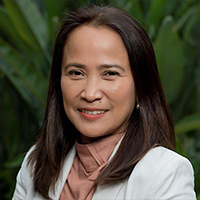
Dr Delia Catacutan
Fellow

Dr Delia Catacutan
Fellow
Delia has over 20-year R&D experience in integrated natural resources management with a focus in the socio-economic, policy and institutional aspects of agroforestry, watershed management, payments for ecosystems services, environment and livelihoods. She has completed PhD in Natural & Rural Systems Management and Post Doc in Sustainability Science. She served the World Agroforestry Centre for nearly 19 years until April 2018 and was the Centre’s country representative in Vietnam. Dr Catacutan has work experience in Southeast Asia and Africa, and has helped in setting up Landcare International. She has been actively involved in other global networks, such as the global Land Coalition, Soils partnerships, ecosystem service partnerships, and eco-agriculture partners.He has worked in Africa since 1978. Although he has maintained a focus on the West African Sahel, Chris Reij has been involved in numerous studies and consultancies in other parts of Africa, Asia, the Caribbean and the Pacific. His main fields of research and writing are related to restoration of degraded land in semi-arid regions, farmer innovation in agriculture, long-term trends in agriculture and environment and analysis of successes in agriculture and land management in Africa. He is the facilitator of "African Re-greening Initiatives", which supports farmers in adapting to climate change and in developing more productive and sustainable farming systems. This initiative was launched to help scale up proven successes in re-greening by individual farmers and communities. It is operational in Burkina Faso and Mali, and is expanding to other African countries. It collaborates with VU University’s Network Institute in a Web Alliance for Re-greening Africa. Chris Reij was honored by the United Nations Convention to Combat Desertification (UNCCD) as Global Drylands Champion 2013.
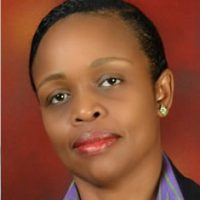
Monicah Kibaki
Fellow

Monicah Kibaki
Fellow
Monicah is a specialist in the development of renewable energy projects and co-ordinating government multi-agency collaborations towards projects actualization. She is also experienced establishing strategic business partnerships and aligning the partners with business objectives, managing foreign investors relations, linking investors to business opportunities in East Africa, monetary and in-kind fundraising to support Kenyan communities in need across various sectors, and in increasing efficiency in processes by identifying key areas of value, managing bottlenecks and reducing or eliminating unproductive components. She is a partner in Biomass Africa Ltd. Kenya, Naro Moru Solar Ltd. Kenya, and Regions20, Switzerland.
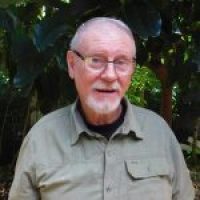
Mel Landers
Fellow

Mel Landers
Fellow
Mel Landers is an Environmental Biologist. He and his wife, General Biologist Margarita Lorío, teach the ancient Indigenous American Agroforestry system mentioned in the IPCC’s 2007 climate assessment as the technology needed to adapt to and mitigate the effects of climate change. Mel also studied crop production and paleo climatology in individual study. After teaching agricultural practices to the formerly hunter gatherer tribe, the Urarinas of the Peruvian Amazon in 1969, Mel began his lifelong study of the system adapted from the forest ecosystem by Indigenous American women over a period of thousands of years. Mel became fascinated by natural systems as a child. This was amplified by his early study and field work in Archaeology and Paleontology. His understanding of past earth systems, coupled with a systems analysis approach, an indigenous world view and his holistic ecosystems training have given him a unique perspective on the problems faced by the world today. They are also helping him formulate realistic, matter of fact solutions for reducing the damage that has been done to earth systems.
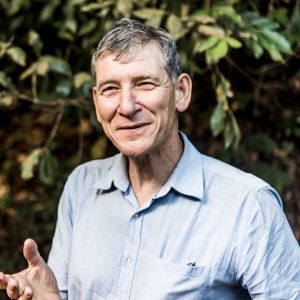
Tony Rinaudo
Fellow

Tony Rinaudo
Fellow
Tony spent 18 years in Niger, managing the SIM Maradi Integrated Development Project, famine relief interventions, and pioneering Farmer Managed Natural Regeneration (FMNR)(1981-1999). These activities contributed to a transformation in the way Nigeriens farm, and the reforestation of over six million hectares of land. He also helped develop and promote alternate food crops, including drought tolerant, high-protein edible Australian acacias. The government of Niger awarded him it’s highest honor for an expatriate “The Order of Agricultural with Merit” (Merite Agricole du Niger). Tony, often referred to as the “Tree Whisperer”, is the Principal Natural Resources advisor at World Vision Australia, and 2018 Right Livelihood Award laureate.
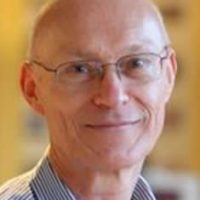
Robert Winterbottom
Fellow

Robert Winterbottom
Fellow
Bob has broad experience in environmental sciences and natural resource management, working on issues of desertification control, tropical deforestation, community-based natural resource management and forest landscape restoration in Africa, Asia and Central America. After serving as a Peace Corps volunteer in community reforestation in Burkina Faso, Bob helped to formulate Desertification Control plans in Sahelian countries. Bob contributed to the formulation and launching of the Tropical Forestry Action Plan and served as WRI’s first Director of the Forestry and Land Use program. Between 1981 – 2011, Bob led the implementation of USAID institutional strengthening and rural development projects in Burkina Faso, Rwanda, Niger, Senegal and Bangladesh. While working with WRI’s Global Restoration Initiative, Bob played a key role in launching the AFR100 African Restoration Initiative.
Gina Castillo Paladines
Fellow
Gina Castillo Paladines
Fellow
Gina Castillo has a Ph.D. in anthropology and has over 15 years of experience in international development. She brings particular knowledge in the areas of agriculture and food systems, climate change and resilience, and gender and inclusion. She has worked for Oxfam in various capacities and has managed complex international research projects and partnerships. As a senior manager at Oxfam America, she helped design their food systems strategy, led the pillar on advancing economic opportunities for smallholders, and oversaw their agroforestry work. She also co-led Oxfam International’s Resilience Knowledge Hub and was a key contributor to the organization’s resilience and agroecology policies. She combines her extensive programming experience with expertise in research, program design, strategy and analysis.
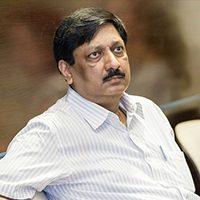
RB Sinha
Fellow

RB Sinha
Fellow
Senior technical consultant in the department/ministry of agriculture, cooperation and farmers welfare for India
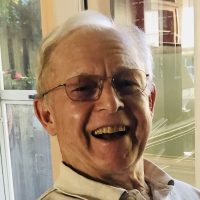
Michael McGahuey
Fellow

Michael McGahuey
Fellow
Served in Niger from 1968 to 1972 as a forestry volunteer. From 1975 to 1980 managed a forestry project with CARE/Chad. Joined Chemonics International in 1985 as an Ag/NRM specialist. Joined USAID’s Africa Bureau in 1987 and became part of USAID’s Global Bureau in 2004. Upon joining USAID focused on taking stock of outcomes and lessons from past investments in NRM and Agriculture. Subsequently used this knowledge to assist Bureau and field Missions in designing and evaluating Ag/NRM programs, primarily in West Africa and Haiti. In 1994 was part of the US team that negotiated the UN Convention to Combat Desertification (UNCCD) where became part of an informal network of international practitioners to identify, analyse, capitalize and champion successful and notable outcomes. Have a BS and MS in Agronomy from Oregon State University.
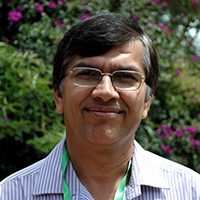
Dr Jagadish Timsina
Fellow

Dr Jagadish Timsina
Fellow
Dr. Jagadish Timsina is a systems agronomist specialising on crop, soil, nutrient and water management; conservation agriculture based sustainable intensification; agroforestry and community forestry; and crop and systems modelling. He has diverse experience in agronomic, economic, and environmental management of agro-ecologies ranging from plains in Australia to hills and mountains in South and Southeast Asia. He has worked with University of Melbourne and CSIRO (Australia), International Rice Research Institute (Bangladesh and Philippines), International Maize and Wheat Research Centre (Bangladesh and Mexico), and Agricultural and Forestry University (Nepal) for over 35 years. Currently, he is associated with Institute for Study and Development Worldwide (Sydney) and is an editor to Agricultural Systems.
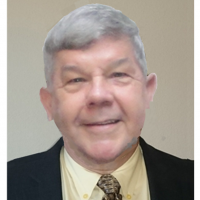
Dr John Motloch
Fellow

Dr John Motloch
Fellow
Teaches and writes about place-based and people-based eco-centric co-design and whole-system solutions in stable and rapidly-changing contexts. John co-created the Sustainable Communities Institute, Inc. that helps communities thrive by living within local systems. Fulbright In Morocco (2018). Fellow, Center for Maximum Potential Building Systems (1995-present). Fellow, IC2 Institute (2008). Directed Ball State University Land Design Institute and three USDOE-funded international consortia. John is also a recipient of the National awards in architecture, landscape architecture, and human science research.
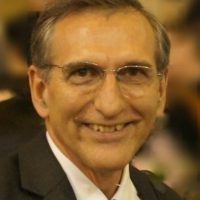
Patrick Durst
Fellow

Patrick Durst
Fellow
Patrick Durst is currently an independent forestry and natural resources consultant. He was Senior Forestry Officer with the FAO Regional Office for Asia and the Pacific, from 1994 to 2017, where he coordinated FAO’s natural resources projects and activities. Prior to that, Durst worked as Coordinator for Asia and the Near East, with the USDA Forest Service and USAID, and served as a U.S. Peace Corps Volunteer in Bohol, Philippines.
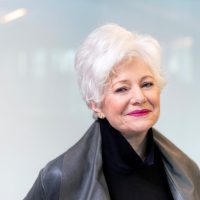
Lynn Haight
Fellow

Lynn Haight
Fellow
Lynn Haight has had two main streams of activity in her career. For many years she was a senior or the Chief Financial Executive in three international financial or insurance companies headquartered in Canada (Scotiabank, Manulife Financial, Foresters Financial). And during that time, she pursued voluntary appointments on Boards of Directors relating to international development organisations, often chairing them (Canada Standards Organisation, World Agroforestry Center, Consortium Board of International Agricultural Research Centers, Management Oversight Committees of UNHCR and UNESCO), as well as other professional governance interests. She has an MA from Oxford University, is a FCA in Canada and England, a fellow of Canadian Management Consulting Association, and a certified Canadian Director. She lives in Toronto, Canada and London, UK, and has a sense of humour.
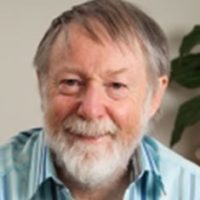
Prof John Dixon
Fellow

Prof John Dixon
Fellow
From a farming background in Queensland, Australia, John took up international research and development with FAO commencing in Iran, then Ethiopia (FSR), Rome as Chair, Agroforestry Working Group, Nepal (farming systems national survey), Thailand (sustainable development of marginal communities across 8 Asian countries) and Zimbabwe (innovations in research and extension methods in 9 east and southern African countries). Later, he was Director at CIMMYT, with responsibilities for targeting, impact assessment and systems agronomy/conservation agriculture, then Principal Regional Coordinator for Africa and South Asia and Principle Adviser Research at ACIAR. He also has honorary positions with the University of Queensland, Australian National University and he is a Board Member of the USAID-funded Sustainable Intensification Innovation Lab.
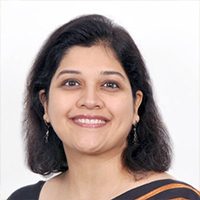
Dr Rohini Chaturvedi
Fellow

Dr Rohini Chaturvedi
Fellow
Rohini Chaturvedi is a leading philanthropy, in India. She was part of the global management team at World Resources Institute (WRI), contributing to institutional strategy and direction, also establishing a Sustainable Landscapes and Restoration program for WRI India. Rohini has experience leading the development of a first of its kind Restoration Atlas for India to support decision-making for the country’s NDC and Bonn Challenge commitment. She holds two Masters degrees: a forestry degree from the Indian Institute of Forest Management, and an MPhil in Environment & Development from the University of Cambridge. She was a Gates and ORS Scholar at the University of Cambridge, where she completed a PhD in Political Ecology. Her doctoral dissertation was on Forest Federalism, with a focus on centre-states negotiations and politics of environment and development in India.
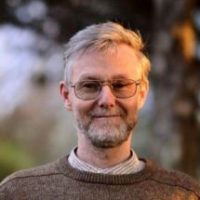
Dr Alan Channer
Fellow

Dr Alan Channer
Fellow
Alan is a specialist in the synergies between land restoration and peacebuilding. He was a featured speaker at the 2015 Nobel Peace Prize Forum, co-author of the 'pastoralist-farmer conflict transformation' programme in Nigeria which won a UNAOC/BMW 'Intercultural Innovation Award' in 2017, and runner-up for the 2019 Bremen International Peace Prize. Alan began his career in tropical agricultural biology, carrying out doctoral and post-doctoral research on crop pest ecology in Tuvalu and Malawi. He won a DfID scholarship to study farming systems at ICRA in Wageningen, and was part of the first international team to study farming systems in rural China. A phase of work in peacebuilding followed, with projects in Cambodia, Nigeria, Chad and Kenya. In 2016, he became a Programme Associate of the EverGreen Agriculture Partnership (ICRAF), researching Farmer Managed Natural Regeneration as a window to peace-building in conflict-prone drylands. He is Co-Director of the ‘Summer Academy on Land, Security and Climate’ in Switzerland.Chris Reij was honored by the United Nations Convention to Combat Desertification (UNCCD) as Global Drylands Champion 2013.
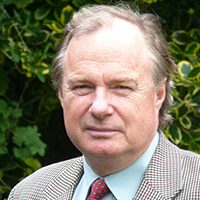
Prof Roger Leakey
Fellow

Prof Roger Leakey
Fellow
Roger is former Director of Research at the World Agroforestry Center and Professor of Agroecology and Sustainable Development at James Cook University, Australia. He has been Vice President of the International Society of Tropical Foresters and is Vice President of the International Tree Foundation. He holds a number of Fellowships in learned societies, universities and international research centres. He was a Coordinating Lead Author in the International Assessment of Agricultural Science and Technology for Development (IAASTD) which was approved by 58 governments in 2008. Roger initiated a global agroforestry programme to start the domestication of wild fruit and nut trees that were the staple diet of people before the Green Revolution, and the author of “Living with the Trees of Life – Towards the Transformation of Tropical Agriculture” (CABI, 2012).
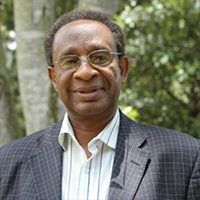
Dr Jeremias Mowo
Fellow

Dr Jeremias Mowo
Fellow
Dr Mowo started his career in 1979 as an agronomist in the Ministry of Agriculture, United Republic of Tanzania, focusing on cotton-based agro-ecosystems. He holds a Master and PhD in Soil Science. In May 2005, he was appointed Senior Scientist (Soil and Water Management Research) at the Institut des Sciences Agronomiques du Rwanda where he introduced Integrated Watershed Management approaches. He joined the World Agroforestry Centre in 2007 as Regional Coordinator for the African Highlands Initiative in Eastern and Central Africa. In 2014, Dr Mowo was appointed ICRAF Regional Coordinator for Eastern and Southern Africa. His research interest includes soil and water conservation, integrated natural resource management and strategies for strengthening grassroots instructions.
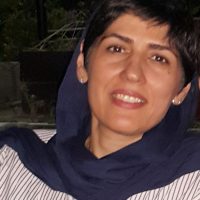
Mina Esteghamat
Fellow

Mina Esteghamat
Fellow
Mina completed her B.Sc. & M.Sc. in Forestry and Forest ecology in Iran, and has a Ph.D. in Agroforestry, from India, Pune University, under the guidance of Dr. Narayan Hegde from BAIF. She is currently the Managing Director of ZIPAK, the Iranian national NGO, and working as Senior Research Associate/ project Manager in Ecosystem-based Natural Resource/ Protected Areas Management. She is also member of the regional IUCN Expert Assessment group for the Green List (EAGL), member of IUCN's World Commission on Protected Areas (WCPA) and the IUCN Reginal Committee, as well as being appointed as senior fellow in the Global Alliance of Evergreening and International Support Group of IYRP. She has fieldwork and research experience in sustainable/community-based natural resource management, GIS and participatory planning, sustainable livelihoods and bio-cultural diversity conservation. She has worked with NGOs, natural resources departments in academic environments and governmental organizations as well as UN agencies. she also worked part-time and voluntarily with the Forest, Rangeland and Watershed Organization (FRWO), the Forest Dept. as the Consultant for Forest Reserves, as well as DoE, Natural Environment Dept., Habitats and Protected Areas Office, as the Consultant for Biosphere Reserves & Peace Parks.
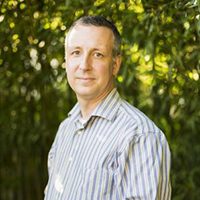
Eric Toensmeier
Fellow

Eric Toensmeier
Fellow
Eric Toensmeier is the award-winning author of Paradise Lot and Perennial Vegetables, and the co-author of Edible Forest Gardens. He is an appointed lecturer at Yale University, a Senior Biosequestration Fellow with Project Drawdown, and an international trainer. He has studied useful perennial plants and their roles in agroforestry systems for over two decades.He is the author of The Carbon Farming Solution: A Global Toolkit of Perennial Crops and Regenerative Agricultural Practices for Climate Change Mitigation and Food Security.
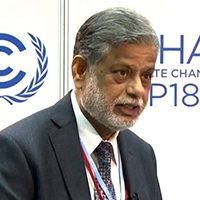
Dr Virendra Pal Singh
Fellow

Dr Virendra Pal Singh
Fellow
Representative for South Asia at the International Centre for Tropical Agriculture / Regional representative for ICRAF
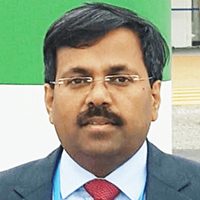
AK Singh
Fellow

AK Singh
Fellow
Since 1991 has been a join secretary rank officer for the Government of India.
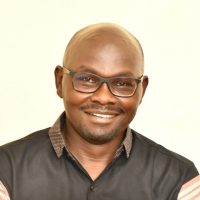
Festus Kiplagat Chirchir
Fellow

Festus Kiplagat Chirchir
Fellow
Festus Kiplagat, a Forestry | Agroforestry Professional has spent 20 years implementing community driven ecosystem restoration projects in East Africa which have contributed to improved food security and livelihoods of farming communities. While in government, he helped with the restoration of major water towers by planting over 10 million agroforestry seedlings in fragile ecosystems. Festus prefers to be called a “Tree Grower” and owns a 15 acre forest which has inspired his peers to join the tree growing movement. He is the Founder of the Green Planet Initiative 2050, an initiative endorsed by the UN Decade of Ecosystem Restoration. Festus is also an FMNR expert and an online trainer.
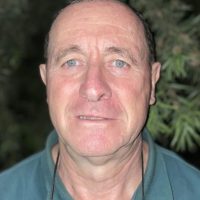
Jan Vandenabeele
Fellow

Jan Vandenabeele
Fellow
Jan has spent most of his professional life working on afforestation projects, often with research involvement, in countries such as Mozambique, Rwanda, Peru, and China. He has now settled in Kenya where he is employed by a private company specializing in afforestation. Jan is dedicated to afforestation and agroforestry in the drylands of East Africa, with a focus on restoring farmland and promoting sustainable agriculture among smallholder farmers. He runs a horticultural farm in southeast Kenya and has been publishing and editing the quarterly "Miti" magazine on East African forestry since 2009.
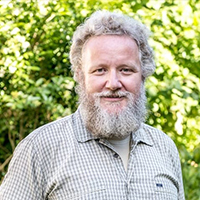
Patrick Worms
Fellow

Patrick Worms
Fellow
Patrick Worms, a molecular geneticist, represents the world’s premier research institution devoted to the study of the roles of trees in agricultural landscapes to policy makers in Brussels and elsewhere in Europe. Patrick is also President of the Executive Committee of EURAF, the European Agroforestry Federation; a member of the Steering Committee of International Land Lives Peace, a Trustee of AFS Magyarország Nemzetközi Csereprogram Alapítvány, a Trustee of ALAAP International, and a member of several advisory boards.
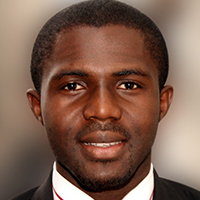
Dr Kelechi Eleanya
Fellow

Dr Kelechi Eleanya
Fellow
Kelechi Eleanya is a forest resource economist. His research interests are sustainable forest-based livelihoods, climate change, environmental policy and resource governance. He worked as a lecturer in Forest policy and economics at the Department of Forestry and Wildlife Management at the Federal University in Nigeria. He has won National and International Awards, he was a Cameron Speth Fellow at the World Resources Institute (WRI) in Washington DC, Andrew Sabin International Environmental Fellow at the Yale University School of Forestry and Environmental Studies USA, and a winner of the International Tropical Timber Organization (ITTO) Japan Fellowship amongst others. He is a member of the Forestry Association of Nigeria (FAN), Common Wealth Forestry Association (CFA) UK, Society of American Foresters (SAF) USA, American Association for the Advancement of Science (AAAS) USA and other local and International organizations. Dr. Eleanya has a strong vision to make positive impacts in Global Development Practice in Africa and around the world. He was a project team member on the implementation of the United Nations Millennium Villages Project (MVP) aimed at achieving the Millennium Development Goals in rural Africa; he is actively engaged with policy makers, academia and other stakeholders to promote progress towards a more Sustainable Global Environment and in 2017 he facilitated Nigeria’s membership and commitment to the African Forest Landscape Restoration Initiative (AFR100).
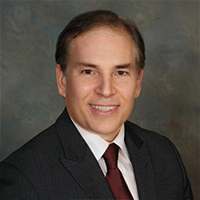
Craig Tenney
Fellow

Craig Tenney
Fellow
Craig has played a variety of international development roles over his career, but he has become increasingly focused on his twin passions of empowering disadvantaged smallholder farmers and reducing climate change. The Global Evergreening Alliance helps him contribute to both in a unique and powerful manner. He served as Latin America Regional Director for World Vision U.S., Mexico Country Manager for Food for the Hungry, Small Business Development Director in Bolivia for Mennonite Economic Development Associates, and independent international consultant, addressing food security, agricultural development and value chains, or microenterprise development, and entailing work in Latin America, Africa, Asia and Eastern Europe. He is eager to support the Alliance in working on financial analysis of FMNR and bio-mass investments for farmers and investors, proposal-writing and fund-raising with foundations as well as seeking private-sector financing, and strengthening our presence in Latin America. Craig has a M.S. in Agricultural Economics from the University of California at Davis and an international MBA from Thunderbird.
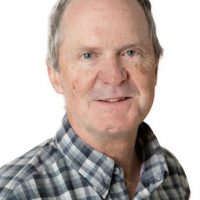
Mike Ruth
Fellow

Mike Ruth
Fellow
Mike Ruth, M.Sc., is a professional GIS practitioner for Esri (Environmental Systems Research Institute, Inc). Mike has been a project manager and consultant for Esri, helping a wide variety of agencies learn and exploit geographic information systems. His clients have included major non governmental organizations, tribal and state governments, and US federal agencies. Mike studied Environmental Science in college, later specializing in Geology at George Washington University. For his Masters degree, Mike completing a field mapping project studying the geology of the western Dominican Republic along the Haiti border area. After completing his Master of Science degree, Mike worked for the Spot Image Corporation, developing GeoTIFF and other satellite imagery methods for GIS integration. Now at Esri, Mike has focused on Africa projects for non-profit organizations over the past few years. Recent projects address the applications of GIS technology for improving polio vaccination success in Nigeria, agricultural improvement for small holder farmers in Tanzania, and participatory community conservation activities in the western Serengeti, among other projects.
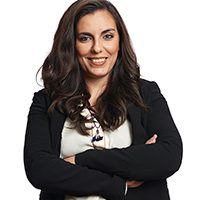
Sarah Toumi
Fellow

Sarah Toumi
Fellow
Sarah Toumi is a social entrepreneur and solutions designer, founder of Acacias for all, a global movement born in 2012 in Tunisia to fight desertification, poverty and gender inequalities by empowering women farmers into agroecological value chains, and Tunisians citizens into a tree-planting program called "1MillionTrees4Tunisia". In 2019, she founded Plug&Green, a digital plateform aiming at connecting companies who want to green the planet with African farmers. Sarah is coming from a family of farmers and has been a witness of climate changes in her grand-parents village in Tunisia. As her mother is French and she lived in Paris during her first 24 years old, she has got a double-culture that allows her to feel at ease in the nature leading tree planting activities, or in international conferences giving speeches to raise awareness on the land degradation issues in North Africa. Since 2017, Sarah has been selected by M. Emmanuel Macron, President of the Republic of France, as a member of the French Presidential Council for Africa, to make propositions regarding the subjects of agriculture, climate and biodiversity.
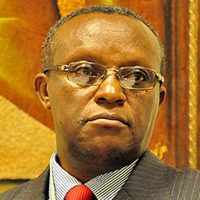
Prof Martin Shem
Fellow

Prof Martin Shem
Fellow
Martin has been Senior Scientist at the Institut des Sciences Agronomiques du Rwanda (ISAR), and a senior consultant in the Ministry of Agriculture and Animal Resources (MINAGRI) Rwanda during which he was involved in the design of Rwanda’s Agriculture Intensification Program. Later he was the first Director General of the Rwanda Agriculture Board. He was the Chair of the Technical Support Group of ASARECA’s (Association for strengthening Agricultural Research in East and Central Africa), which reviewed competitive research projects funded by the EU. Under ASARECA Prof. He is a member of the Tanzania Private Sector Federation and is a director in a number of private agro-processing firms.
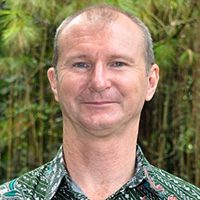
Robert F. Finlayson
Fellow

Robert F. Finlayson
Fellow
Robert is Senior Strategic Communication and Liaison with World Agroforestry (ICRAF), a global position with a special focus on Southeast Asia. He has been instrumental in developing the Transformational Partnership Platform for Restoring Drylands and Drought-prone Areas in Asia and other strategic initiatives in the region. He has produced numerous stories, videos and other products on restoration and agroforestry globally. His background is in community cultural development and poetry.
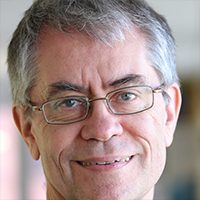
Dr Lars Laestadius
Fellow

Dr Lars Laestadius
Fellow
In 2008, Lars joined the core group of the GPFLR and led work on a global map of restoration opportunities in collaboration with University of Maryland and IUCN. The Bonn Challenge and the NY Declaration on Forests targets of 150 million ha and 350 million ha, respectively, are based on this map. Based on field work in Ghana and Rwanda, in collaboration with IUCN, he then helped conceive of the Restoration Opportunity Assessment Methodology (ROAM) for assessing restoration opportunities at the national level. Aware of the limitations of the global restoration map, Lars identified Collect Earth as a potentially viable technology for collecting meaningful data about trees outside the classically defined forest and inspired WRI and FAO to apply it. Working as a consultant for FAO, Lars was instrumental in producing a drylands restoration opportunity map for Africa’s Great Green Wall. He remains interested in finding locally “owned” ways to collect data on trees and other features outside the classically defined forest, to develop ways to stimulate and guide restoration in landscapes, and to assess the need/opportunity for restoration and assess progress toward global and national targets.
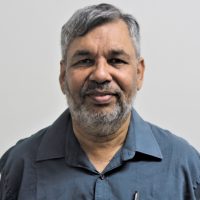
Dr Ravindra Joshi
Fellow

Dr Ravindra Joshi
Fellow
Over twenty-five years’ experience in sustainable agriculture in Asia, Africa, South Pacific Islands, and the Caribbean at the international, regional and national organizations (research and government ministries), and regional and national universities. Ravindra served as senior adviser to the Ministry of Agriculture in two South Pacific Countries (Fiji and Solomon Islands) on research & policy matters. Edited 4 books, and published over 150 research articles on crop protection, especially on invasive alien species in aquatic and terrestrial ecosystems. He is a fellow of many professional societies, and hold honorary positions in a number of professional networks and associations.
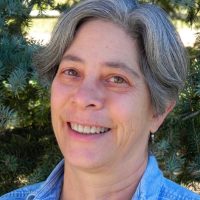
Robin Chazdon
Fellow

Robin Chazdon
Fellow
Robin Chazdon is part-time Research Professor with the Tropical Forests and People Research Centre at the University of the Sunshine Coast in Queensland, Australia and Professor Emerita in the Ecology and Evolutionary Biology Department at the University of Connecticut and. Her long-term and on-going collaborative research focuses on tropical forest regeneration, forest and landscape restoration, drivers of land-use change, and ecosystem services provided by forests. She is the principal consultant of Forestoration International LLC, a consulting group established to support implementation of forest and landscape restoration. She recently served as the Executive Director of the Association for Tropical Biology and Conservation and as Director of the Research Coordination Network PARTNERS (People and Reforestation in the Tropics). She is a Senior Fellow with the World Resources Institute Global Restoration Initiative and a Senior Research Associate with the International Institute for Sustainability in Rio de Janeiro, Brazil. She serves on the advisory boards of 1t.org, Ashoka Trust for Research in Ecology and the Environment, and the Nature-based Solutions Initiative at Oxford University. She is an active member of the FAO Task Force on Best Practices for the UN Decade of Ecosystem Restoration and co-chair of the subtask force on Capacity Assessment, Knowledge and Learning Plan. She is the author or co-author of over 200 peer-reviewed publications. Chazdon’s sole authored book “Second growth: The promise of tropical forest regeneration in an age of deforestation” was published in 2014.
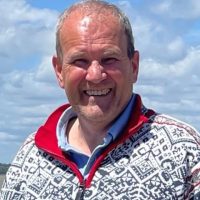
Jules Pretty
Fellow

Jules Pretty
Fellow
Jules Pretty is Professor of Environment and Society at the University of Essex, and Director of the Centre for Public and Policy Engagement. His books include The Low-Carbon Good Life (2023), Sea Sagas of the North (2022), The East Country (2017), The Edge of Extinction (2014), This Luminous Coast (2011), Agri-Culture (2002) and Regenerating Agriculture (1995). He is Chief Editor of the International Journal of Agricultural Sustainability. He received an OBE for services to sustainable agriculture, an honorary degree from Ohio State University, and the British Science Association Presidential Medal. He is among the top 1% most cited scientists worldwide, and is host of the podcast Louder Than Words and film shorts series Brighter Futures.
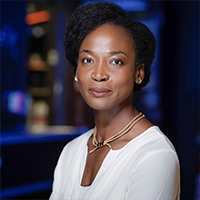
Dr Leena Koni Hoffmann
Fellow

Dr Leena Koni Hoffmann
Fellow
Dr Leena Koni Hoffmann is the Nigeria Country Lead for the Chatham House Africa Programme’s Social Norms and Accountable Governance (SNAG) Project and an Africa Programme Associate Fellow She is also a technical adviser to the Permanent Inter-State Committee for Drought Control in the Sahel based in Burkina Faso. She was a Marie Curie research fellow at the Luxembourg Institute of Socio-Economic Research (LISER) in 2013–15.
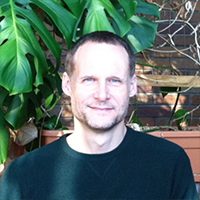
Gene Fifer
Fellow

Gene Fifer
Fellow
Gene grew up among smallholder farmers in the Appalachian mountains and was inspired by their diverse and resilient farms and spirit of innovation. Gene learned about environmental stewardship from his father who was an ecological refugee from the Dust Bowl. He teaches and writes about sustainable agriculture, agroforestry, climate change, restoration, and migration.
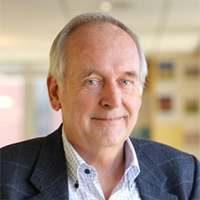
Chris Reij
Fellow

Chris Reij
Fellow
Chris Reij is a Sustainable Land Management specialist and a Senior Fellow of the World Resources Institute in Washington. He supports the work of the Global Restoration Initiative. He has worked in Africa since 1978. Although he has maintained a focus on the West African Sahel, Chris Reij has been involved in numerous studies and consultancies in other parts of Africa, Asia, the Caribbean and the Pacific. His main fields of research and writing are related to restoration of degraded land in semi-arid regions, farmer innovation in agriculture, long-term trends in agriculture and environment and analysis of successes in agriculture and land management in Africa. He is the facilitator of "African Re-greening Initiatives", which supports farmers in adapting to climate change and in developing more productive and sustainable farming systems. This initiative was launched to help scale up proven successes in re-greening by individual farmers and communities. It is operational in Burkina Faso and Mali, and is expanding to other African countries. It collaborates with VU University’s Network Institute in a Web Alliance for Re-greening Africa. Chris Reij was honored by the United Nations Convention to Combat Desertification (UNCCD) as Global Drylands Champion 2013.
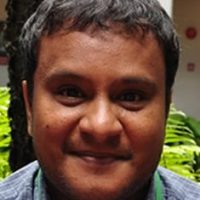
Sid Mohan
Fellow

Sid Mohan
Fellow
Sid has extensive international experience in program management, monitoring and evaluation, strategic planning, and business analysis, with public and private sector organizations in Sub-Saharan Africa, Southeast Asia, and the United States. I completed my Master of Public Management from University of Maryland College Park. Significant Research and Policy Analysis experience in development, governance, and environmental impact issues. Highly adept at collaborating/interfacing with different stakeholder groups to produce desired outcomes effectively and efficiently. Experienced in leading diverse teams through programs and projects.
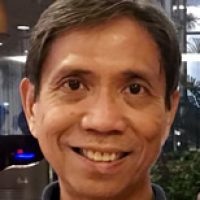
Eduardo Queblatin
Fellow

Eduardo Queblatin
Fellow
Independent planning and evaluation consultant on issues in Agriculture and Natural Resources Management. Eduardo completed his Master in Public Administration specializing in Planning and evaluation in Agriculture and Natural Resources Management issues. In the past 18 years, Ed helped plan and evaluate programs on community based NRM, biodiversity conservation, agroforestry, agricultural heritage systems. Ed covered Southeast Asian countries (particularly the Philippines, Myanmar Cambodia, Indonesia and Vietnam) as well as parts of South Asia and the South Pacific. He has worked with the UNCCD on SLM concerns and helped develop and review the NBSAPs of selected countries. He intermittently works with UN agencies such as GEF, UNDP, FAO, IFAD, UNCCD, as well as ASEAN and INGOs (including the WWF).
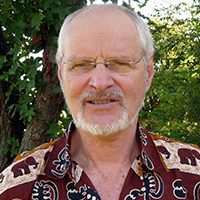
Peter Gubbels
Fellow

Peter Gubbels
Fellow
Peter Gubbels has 34 years of experience in rural development, which includes over 26 years of living and working in West Africa. Currently based in northern Ghana, Peter provides action research and advocacy support to Groundswell’s network of partners in 4 countries of West Africa who empower rural communities to build equitable and ecologically sound local economies, spread lasting solutions, and engage in wider coalitions for change. Peter is the author of several impact assessments, research reports and policy briefs. Peter is also the co-author of a series of case studies and policy notes on integrating nutrition, equity, women’s empowerment and local governance in Agroecology, as the foundation for resilience in the Sahel.
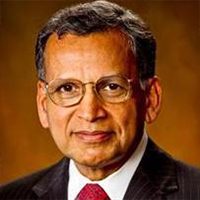
Prof Dr P.K. Ramachandran Nair
Fellow
Distinguished Professor (Emeritus), University of Florida, USA, Professor Nair is a pioneering researcher and a world-renowned scientist in Agroforestry, who has made outstanding contributions to the development of the science and practice of agroforestry worldwide.He was educated in India (BSc, MSc, PhD; Agronomy & Soils); England (Postdoc, Soils, Rothamsted); and Germany (Dr. Sc: Senior Humboldt Fellow). Following his path-breaking research on multistorey cropping with tree crops in southern India, 1972–1978, Dr. Nair became one of the founders of ICRAF (World Agroforestry Centre) Nairobi, Kenya.Prof. Nair received the Humboldt Prize, the highest academic honor in Germany, in 2006. He is a Fellow of the American Association for the Advancement of Science; the National Academy of Agri. Sciences, India; and all three of the American tri-societies of Agronomy, Crop Science, and Soil Science. His other awards include: the IUFRO (International Union of Forest Research Organizations) Scientific Achievement Award; the Forest Science Award of the Society of American Foresters, 2014; and honorary Doctorate degrees from the Universities of Kyoto, Japan; Kumasi, Ghana; Guelph, Canada; and Santiago de Compostela, Spain.
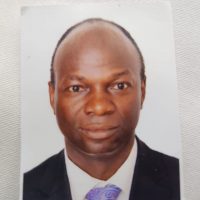
Dr Kenneth Namunje
Fellow

Dr Kenneth Namunje
Fellow
Kenneth Namunje is the chairman of the Board providing Craftskills Wind Energy International LTD with his vast experience and giving direction. He also heads the Board of Craftskills East Africa Limited (a small wind turbine manufacturer in the region) which is the mother company of Craftskills Wind Energy International Ltd. Dr Kenneth Namunje is a medical doctor by profession with a specialization in surgical medicine from the Universities of Nairobi and Cape Town South Africa. He has a 6 years experience at the department of surgery, Agha Khan Hospital Nairobi. Dr Kenneth is currently enrolled for an MBA programme at the Wharton University USA. Apart from his medical profession Dr Kenneth has had a keen interest in development projects. This can be attested by his current involvement and investment in projects focused on poverty alleviation. He sits in a number of management boards such as Nairobi Outpatient Centre (NOC). He is a director in Craftskills Wind Energy International Limited and director of Kipeto Energy Limited a JDA with GE Energy to develop 100MW wind farm in Kenya.
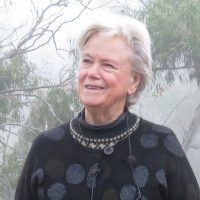
Dr Tein McDonald
Fellow

Dr Tein McDonald
Fellow
Dr Tein McDonald has over four decades of experience in ecological restoration - as a practitioner, teacher, author and journal editor. She has served on the boards of three Australian Restoration organisations and co-authored the Australian and International documents Standards for the Practice of Ecological Restoration. Tein’s current focus is on convening Australia’s Restoration Decade Alliance and in networking to raise greater international awareness about using natural regeneration in restoration.
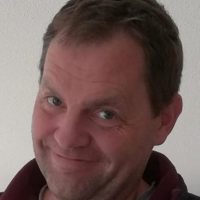
Ir. P.F. (Peter) Paap MEPM
Fellow

Ir. P.F. (Peter) Paap MEPM
Fellow
Peter has been working in international cooperation for over 20 years, having started as a forestry advisor in Guinée Conakry, West Africa for 2 years. In 2006, he started working as a free lance international consultant within the UN system, doing project development, monitoring and evaluation assignments for UNDP, UNEP and FAO in various parts of the world. In most projects, Peter has focused on landscape restoration through agroforestry.
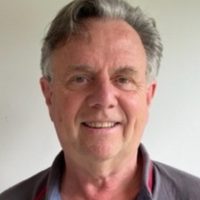
Rob de Laet
Fellow

Rob de Laet
Fellow
Philosopher, climate activist, rewilding a secluded Brazilian rainforest valley. Gripped by the question of ''what is consciousness'' as well as by the likely collapse of global human civilization. Rob understands the whole planet as one living organism and looks at solutions from the lens of biomimicry and at a planetary scale from a perspective of geo-biomimicry. Working on averting the dieback of the Amazon Rainforest through strengthening the biotic pump function of the biome.
Associates
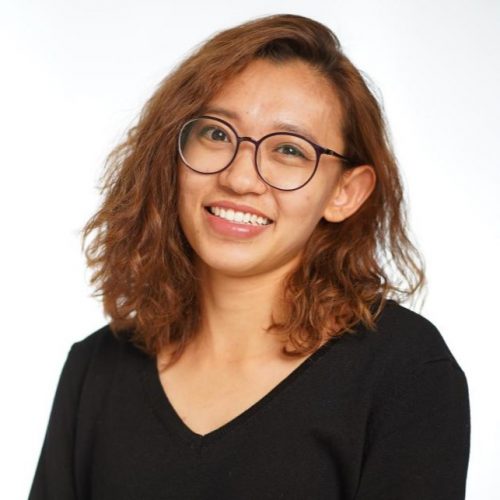
Dr. Khaing Thandar Soe
Associate

Dr. Khaing Thandar Soe
Associate
Thandar is a Post-doctoral fellow with World Agroforestry (ICRAF), involved in the agroforestry development in Myanmar. With her interests in social forestry, agricultural economics, agroforestry and livelihoods, Thandar aims to address the complex interaction between people and ecological systems through research-for-development approach, to explore pathways to sustainable governance of natural resources, and to conduct research and evidence-based action oriented projects, as well as participatory landscape restoration in her career path.
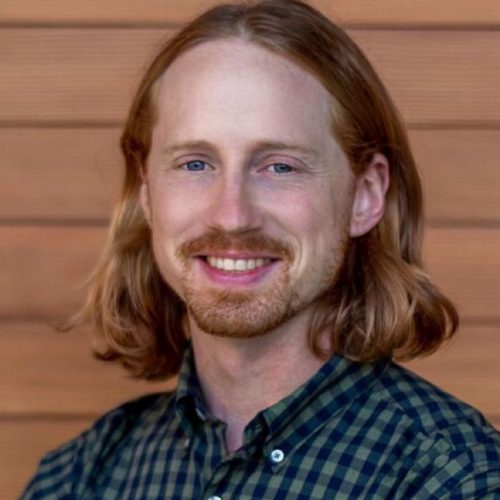
Ryan Smith
Associate

Ryan Smith
Associate
Ryan has a Masters in Forestry from The Forest School in The Yale School of the Environment. He specializes in smallholder agroforestry and restoration, with extensive experience in Ecuador, Peru, and Sri Lanka. He has researched aboveground carbon stocks agroforestry systems and contributed to a guide to restoration through assisted natural regeneration. In the US, Ryan is a chestnut grower and is working to grow a chestnut industry on the East coast.
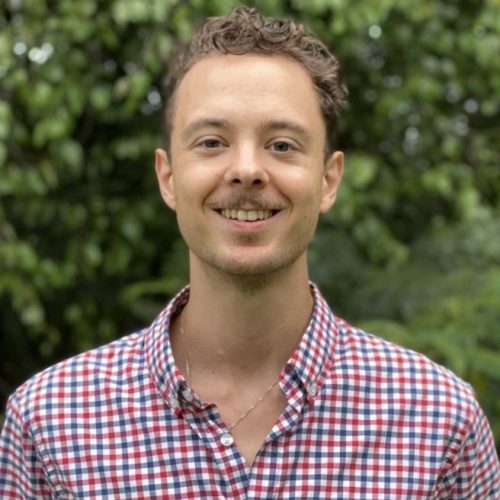
Nigel van der Woude
Associate

Nigel van der Woude
Associate
Nigel is a Development Practitioner bringing a critical Social Sciences lens to Land Restoration, Livelihoods, and Democracy projects, with keen interest in Faith-based Land Restoration. With background in Linguistics and Education and finishing a Master’s in Development Practice at Emory University, he facilitates stakeholder engagement and helps organizations tell their stories. His recent work includes synthesizing learning and accomplishments for Regreening Africa and researching transitional democracies for The Carter Center.